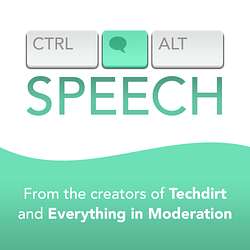Free speech politics, AI missteps, and Pinterest’s pivot to prevention
Hello and welcome to Everything in Moderation's Week in Review, your need-to-know news and analysis about platform policy, content moderation and internet regulation. It's written by me, Ben Whitelaw and supported by members like you.
Exciting news, for me at least: EiM is co-hosting some birthday drinks and nibbles in conjunction with Marked As Urgent, the tech policy events series I've been involved with since the start of the year.
So, if you're in the UK on Thursday 25th September, join us for a drink and the chance to network with brilliant folks working in digital policy, tech regulation and Trust & Safety. It's register only and space is limited.
Warning: This week's newsletter contains several instances of the 'F' word. Apologies in advance to those who find Nigel Farage offensive in any way.
This is your Week in Review — BW
Policies
New and emerging internet policy and online speech regulation
Rep. Jim Jordan’s special House Judiciary Committee hearing (EiM #302) might have been a circus but it also served as an “escalation in Jordan’s war on Europe tech regulations”, according to Politico.
UK politician Nigel Farage — called a ‘Donald Trump sycophant and wannabe” by a Democrat committee member — was the self-styled main attraction and was quick to reference the arrest of an Irish comedian that has attracted the attention of the British press this week.
However, he failed to mention that it had anything to do with the Online Safety Act and was related to a law that came in in 1986 — coincidently, the same year Tim Berners-Lee co-authored a paper about pre-internet information systems while still at CERN. That didn’t stop tech industry group NetChoice from "applaud(ing) this Committee's leadership on this important issue".
Mike had a less than positive take on the hearing — and Farage’s lunch plans — on this week’s Ctrl-Alt-Speech. Have a listen.

The most interesting part of the hearing did not happen on camera but via a letter to Rep. Jim Jordan signed by 30+ academics and researchers addressing the idea that the Digital Services Act is a tool for censorship. Organised by Martin Husovec, associate professor of law at LSE, it explains the scope of the Act and reminds US representatives about checks in balances in place to avoid overstepping. Will it help? Unlikely. But seeing US and EU scholars come together in this way certainly made me sit up and take notice.

